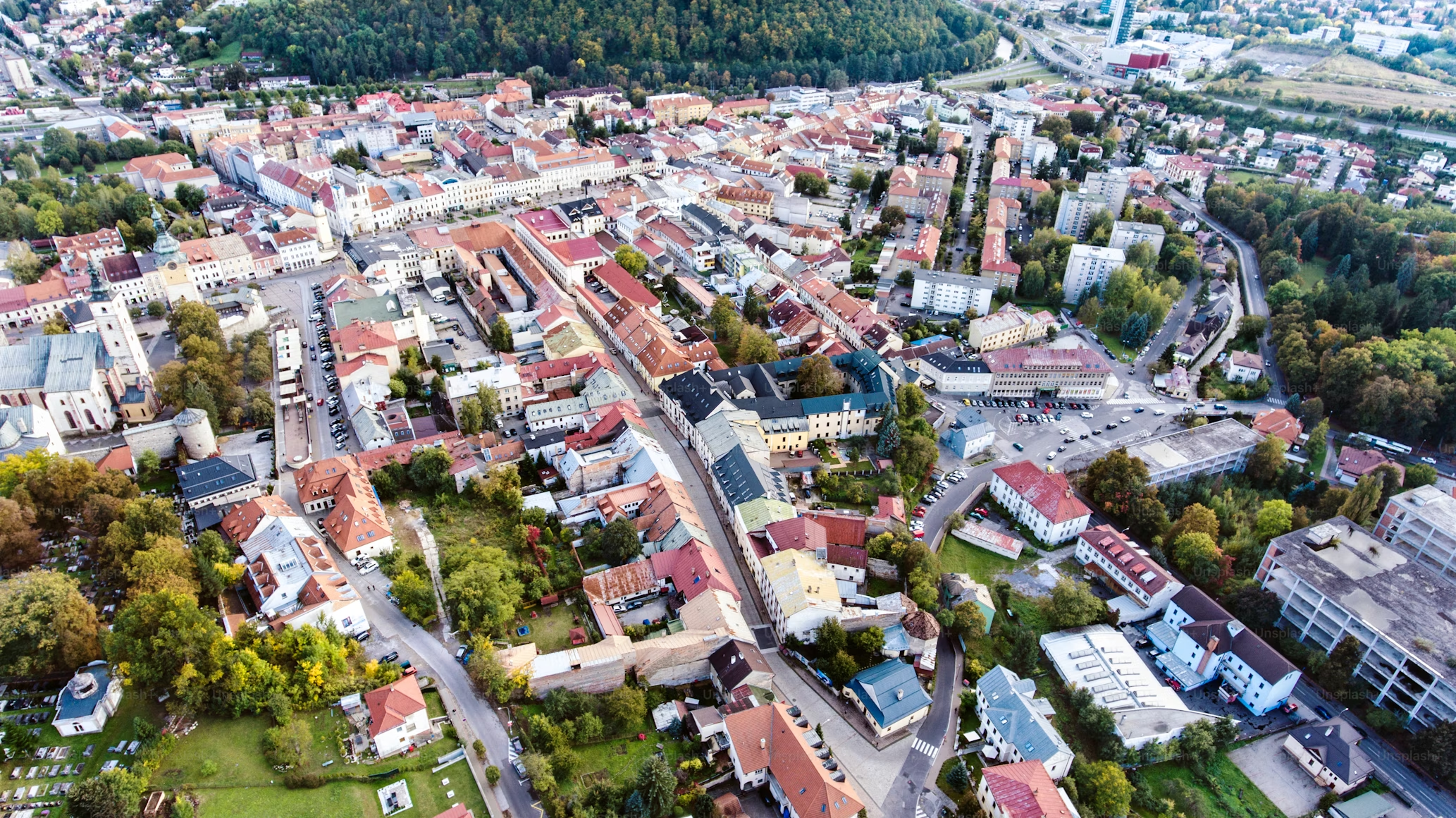The world of geoinformatics is as diverse as a carefully designed map atlas. Studying at a university opens up exciting opportunities in the areas of geodesy, computer science and research. Whether in a bachelor's or master's degree, the various degree programs offer you the opportunity to analyze valuable information and data and develop innovative solutions. Discover how students from different faculties work together to shape the future of geoinformatics and gain significant insights in science.
1. Introduction: The importance of geoinformatics in our world
Geoinformatics offers a fascinating variety of courses that are available at universities. Students have the opportunity to acquire knowledge in areas such as geodesy, computer science and data analysis in bachelor and master programs. These degree programs integrate practical research and innovative technologies to meet the challenges of modern society. The interdisciplinary approach gives future specialists not only theoretical knowledge but also practical skills in dealing with geographical information systems (GIS). The faculty attaches great importance to combining science and application, which optimally prepares students for the job market. Each semester, they have the opportunity to gain valuable insights into current projects and developments that deepen their understanding of complex spatial data. Studying geoinformatics is therefore a key to a wide range of career opportunities in a dynamic and future-oriented industry.
2. The role of the GIS Analyst: Data Analysis and Visualization in Geoinformatics
The function of the GIS Analyst is of great importance in geoinformatics, as he is responsible for analyzing and visualizing extensive data. Students who choose this degree program at a university benefit from a sound education in computer science and geodesy. The course usually includes both a bachelor's and a master's degree, with various faculties and institutes offering innovative research projects. By using modern technologies and methods, GIS analysts are able to generate precise information that is essential for urban planning, environmental and nature protection, and transport planning. Her work enables decision makers to access well-founded data and take appropriate action. GIS analysts also contribute to the development of the department by analyzing current trends and challenges in geoinformatics and developing solutions. This professional field not only offers exciting career prospects, but also plays a central role in shaping a sustainable future.
3. The GIS developer: software solutions for geoinformatics challenges
The GIS developer plays a central role in geoinformatics by creating tailor-made software solutions for complex geoinformatics challenges. Students interested in this area should choose a profound degree in computer science or geodesy at a university to acquire the necessary skills. Bachelor's and Master's degree programs provide practical knowledge that is essential for developing innovative GIS applications. Through research and practical projects, prospective GIS developers learn how to handle data and process information efficiently. It is also important to broaden your horizons and pursue interdisciplinary approaches. The diversity of study programs not only promotes technical understanding, but also the creativity of students, who will make decisive contributions to the further development of geoinformatics systems in the future.
4. The GIS Manager: Management and Coordination in Geoinformatics
The role of the GIS manager is of central importance in geoinformatics. He or she is responsible for the strategic planning and management of GIS projects, which requires close cooperation with various faculties and institutes. A successful GIS manager often has a background in geodesy or computer science and may have completed a master's degree in geoinformatics. This enables him to overcome both technical and administrative challenges. In today's data-driven world, the ability to effectively coordinate information and manage teams is essential. The GIS Manager ensures that data analysis and visualization are implemented seamlessly to gain valuable insights. Students in the Geoinformatics degree program benefit from practice-oriented projects that prepare them for this responsible position. Through continuous training and the acquisition of GIS certificates, they remain competitive in this dynamic professional field.
5. The GIS specialist: expertise and application of geoinformation systems
The role of the GIS specialist in geoinformatics is of great importance, as they represent the link between technology and application. Students in this area have the opportunity to obtain in-depth knowledge in the areas of geodesy, computer science and data analysis through bachelor and master programs at universities. The faculty offers a wide range of research projects that enable students to collect practical information and develop innovative solutions. GIS specialists are responsible for interpreting complex data and turning it into understandable visualizations that can be used in various industries. The combination of theory and practice in studies not only promotes individual expertise, but also the further development of geoinformatics as a science. Through targeted continuing education and the acquisition of GIS certificates, they expand their knowledge and make a significant contribution to the efficiency of projects.
6. The importance of GIS certificates and continuing education in geoinformatics
GIS certificates and continuing education play a central role in geoinformatics and contribute significantly to the development of specialists in this dynamic area. Students who choose a bachelor's or master's degree program at a university benefit from professional expertise that prepares them for current challenges. At institutes such as the University of Osnabrück in particular, various faculties pursue an interdisciplinary approach that combines geodesy, computer science and applied sciences. Through practice-oriented seminars and research projects, students have the opportunity to deepen their knowledge and collect relevant information. These training courses not only promote the understanding of complex data analyses, but also the application of innovative software solutions. GIS certificates are therefore not only a valuable document, but also a sign of continuous development in a changing professional field, which is of great importance for the future of geoinformatics.
7. Conclusion: The diversity of roles in geoinformatics and their influence on our society
The role of the GIS Analyst is of great importance in geoinformatics, as these professionals are responsible for analyzing and visualizing data. They often work at universities or institutes, where they give students valuable insights into the application of geodesy and computer science during their studies. A bachelor's or master's degree in geoinformatics offers them the opportunity to deal with various data sources and deepen the principles of GIS technologies through practical research. In the degree programs, students learn not only the theoretical basics, but also the practical skills required to tackle complex geoinformatics-related challenges. This strengthens their ability to develop innovative solutions and effectively visualize information. The diversity of education and the interdisciplinary approach promote a deeper understanding of the diverse applications of geoinformatics in our modern world.
FAQ
What do you do in geoinformatics?
Geoinformatics deals with the collection, processing, analysis and visualization of geographical data. This discipline combines knowledge from geography, computer science, and mathematics to manage and interpret complex geospatial information. Geoinformation systems (GIS), which make it possible to store, retrieve and analyze spatial data, are a central component of geoinformatics. Professional geoinformatics specialists use various technologies, including remote sensing, to obtain information about the earth's surface. They create maps, analyse environmental changes and support urban planning projects by providing precise geographical analyses. In addition, geoinformatics is used in many areas, such as traffic management, hydrology, the development of renewable energies, and environmental and nature protection. Working in geoinformatics requires both technical expertise and analytical skills to solve problems and make decisions based on spatial data. In this way, geoinformatics specialists make a decisive contribution to sustainable development and planning.
How much does a geoinformatician earn?
The salary of a geoinformatician may vary depending on the region, professional experience and specific field of activity. In Germany, the average entry-level salary for geoinformatics specialists is generally between 40,000 and 50,000 euros gross annually. With increasing experience and responsibility, for example in senior positions or as a GIS manager, the salary can rise to 60,000 to 80,000 euros or more. In addition, the industry and the employer play a decisive role. Geoinformatics specialists working in public administration or in academia often earn less than their colleagues in the private sector, particularly in large companies or specialized consulting firms. The type of projects that are being worked on also influences remuneration. In addition, additional qualifications, such as special GIS certificates or knowledge in related areas such as remote sensing or data analysis, can increase earning potential. Overall, geoinformatics offers an exciting and future-proof professional field with diverse career opportunities and development opportunities.
What is the Geoinformatics degree program?
The Geoinformatics degree program deals with the collection, processing, analysis and visualization of geographical data. Students acquire knowledge in various areas, including geodata management, remote sensing, GIS (geographic information systems) and spatial data analysis. The interdisciplinary approach combines aspects of computer science, geography, surveying technology and environmental sciences. During their studies, participants learn to interpret complex geographical information and develop practical applications in urban planning, environmental and nature conservation, transport planning and many other areas. Students also study modern technologies, such as satellite and aerial image analysis, in order to obtain precise data. Graduates of the Geoinformatics degree program are sought-after specialists in business and in the public sector. They often work as GIS analysts, GIS developers or GIS managers and contribute to making data-based decisions that improve the quality of life in urban and rural areas. A successful degree opens up numerous career opportunities in a dynamic and future-oriented industry.
What is the difference between GIS and geoinformatics?
GIS, or geographic information system, is a technology that is used to collect, store, analyze, and visualize geographic data. It enables users to process and interpret complex spatial information in order to make well-founded decisions. GIS applications can be found in various areas such as urban planning, environmental management and transport planning, where spatial data plays a central role. Geoinformatics, on the other hand, is an interdisciplinary field of study and research that deals with the development and application of technologies for processing geographical information. It covers not only GIS, but also aspects of data science, software development, remote sensing, and cartography. Geoinformatics provides the theoretical basis and methodological approaches necessary to create and improve GIS systems and applications. In summary, GIS is a practical tool that is aimed at specific applications, while geoinformatics, as a comprehensive field, researches and develops the science and technology behind these tools. Geoinformatics therefore offers the necessary knowledge and skills to create innovative solutions in the area of geographic information systems.
testimonials





.avif)







.avif)



-Logo.wine.avif)



